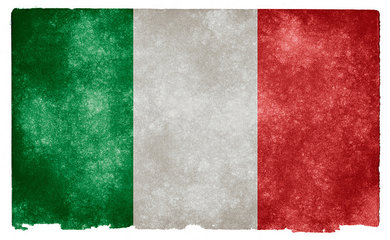While the world watches the situation unfold in the Ukraine, and pundits argue the legitimacy of Crimea reuniting with Russia, Venice held a historic referendum. On March 21, the province of Veneto asked voters their opinion on separating from the rest of Italy. Over two million Venetians voted, with an outstanding 89 percent agreeing with the question “Do you want Veneto to become an independent and sovereign federal republic?” Citing economic malaise, unfettered regulation from Rome, and outrageous taxes, the average Venetian doesn’t feel its best interests are shared with the rest of Italy. While 71 billion euros are taxed from the province every year, only 50 billion euros are reinvested. Most of this money is traveling to the perpetually impoverished south, which Venice shares little historical heritage with.
For the rest of us watching the situation unfold with little context, this move appears unprecedented. Few of us probably knew there even was a secession movement, or that Venice has a long history of Independence, and even speaks its own language (roughly 4 million fluent speakers). For the uninitiated, a history lesson is in order. What we call Venice today, first achieved independence in 804 CE after repelling an invasion from the Frankish Empire. For the next millennia, the people of Venice formed one of the most influential states in European history. They became a major maritime and commercial empire in the Mediterranean, and over time managed to conquer and lose territories all along the Adriatic Sea, as well as provinces in Greece, and the islands of Crete and Cyprus. They formed some of the first modern banks in Western history, and provided many of the greatest artists of the Renaissance. Calling them a “big player” is an understatement. So how did this small but substantially powerful nation get brushed to the backseat of history?
After major trade and commerce shifted to the Atlantic Ocean and away from the Mediterranean, the Venetian maritime empire had faded, and its coffers had finally run dry. In 1797, Napoleon was rampaging his way through Europe and was on course to pushing the Austrians back to Vienna. The Venetian Republic foolishly betrayed it’s neutrality with France, causing Napoleon to halt his advance. The French Caesar responded by marching in and raising his flag without a shot fired. The 1000 year reign of the Republic was finished.
After Napoleon’s defeat, the city was passed onto the Austrians. Venice was briefly an independent republic again after it rebelled against Austria in 1848, but the city was quickly retaken. It wasn’t until the Third war of Italian Independence in 1866 freed the Venetians from Austria, but only to be another member state of the fledgling Italian nation. Independence seemed to be a faraway dream for Venice, long forgotten to the pages of history.
That is until recently. Given it’s colorful and influential history, is it any wonder that Venice has no qualms about returning to its independent status? Although the referendum given to Venetians was merely a poll, and in no way official, the leadership of the province is already withholding its taxes from Rome. The only question is, how will Rome respond to this?
The Italian leadership claims there is no constitutional basis for secession, but constitutions mean nothing if such a large majority decides to act on its own. At the end of the day, there is what exists on paper, and then there is reality. Any nation that faces a successful secession movement, typically has two choices. They could apply military force to the region. This seems unlikely from anywhere in Western Europe, a region that prides itself on keeping the peace for the past 60 years. Likewise Italy would have little support. According to the referendum, the Venetians still wish to remain in the European Union, and NATO. Besides, how could such a cash strapped government, with a debt to GDP ratio of 132 percent, afford to invade one of its more profitable regions.
Speaking of money, the second choice doesn’t bode well for Italy either. They could of course, do nothing. This would likely result in an avalanche of seceding provinces. After all, the main reason Venice wants to leave is because they pay more in taxes to Rome than they receive back. If they successfully secede from Italy, this shifts the tax burden to other regions of Italy, and puts them in the same tax situation as Venice. Adding fuel to the fire, Italy already has numerous secession movements. The Lega Nord party has been pushing for the northern most region of Italy to secede for years. Supposedly, this region provides nearly half the GDP of Italy. The island of Sardinia has been voicing similar concerns, and boasts of it’s own long history of independence. They don’t just want to leave Italy, but the EU as well.
It appears that if Venice isn’t stopped from its brave exit, Italy as a nation is finished. If Venice leaves, it will eventually cause a cascade of seceding provinces. The peninsula will return to its original borders, a diverse land pockmarked with city states. Rome is likely panicking as it searches for a solution. Is there any way they could convince Venice to stay? I wouldn’t hold my breath.
Photo by Nicolas Raymond, licensed under a Creative Commons License – Attribution 3.0 Unported license


“The Venetian Republic foolishly betrayed it’s neutrality with France, causing Napoleon to halt his advance”
Where did you get this? You had better go back to your history books.
Venetians reading this article are laughing their heads off!